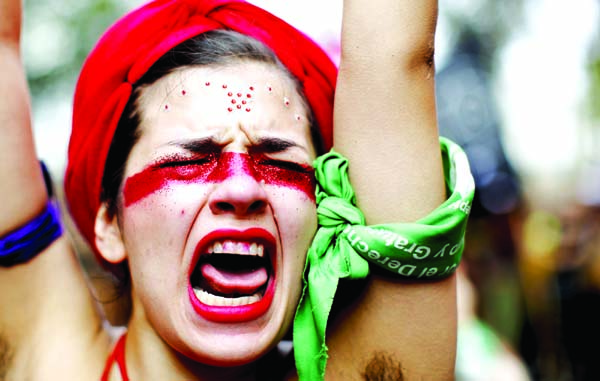
AP, United Nations :
The main U.N. body promoting women’s rights reaffirmed the 1995 road map to achieve gender equality on Monday and pledged to step up implementation amid warnings of rising gender inequality and conservative push-back against its far-reaching agenda.
The Commission on the Status of Women adopted a political declaration backing the 150-page platform for action adopted by 189 countries at the 1995 Beijing women’s conference.
The commission, known as CSW, had been expecting up to 12,000 people from the U.N.’s 193 member nations to come to New York for its annual meeting. But it decided to postpone the major event to a future date because of the spread of the new coronavirus. Instead it held a drastically scaled-back event with New York-based participants to adopt the declaration. Diplomats and civil society representatives in the General Assembly hall burst into applause when Armenia’s U.N. Ambassador Mher Margaryan, the commission chair, banged a gavel signifying the declaration’s approval by consensus by the commission’s 45 member nations from all regions of the world.
Its approval came a day after International Women’s Day, when hundreds of thousands of women filled the streets of the world’s largest cities to protest gender violence and inequality. While many protests were peaceful, others were marred by tension, with security forces arresting demonstrators at a rally in Kyrgyzstan and police reportedly using tear gas to break up a demonstration by thousands of women in Turkey.
U.N. Secretary-General Antonio Guterres told last week’s United Nations’ event marking the day that “gender inequality is the overwhelming injustice of our age and the biggest human rights challenge we face.”
Before Monday’s adoption of the declaration, he told the commission that change is urgently needed to transform the male-dominated world that has existed for millennia.
“Centuries of discrimination, deep-rooted patriarchy and misogyny have created a yawning gender power gap in our economies, our political systems and our corporations,” Guterres said. He said the Beijing declaration and platform “define the most comprehensive and transformative global agenda for gender equality and women’s empowerment.”
The Beijing platform called for bold action in 12 areas for women and girls, including combating poverty and violence, ensuring all girls get an education and putting women at top levels of business and government, as well as at peace-making tables. It also said for the first time in a U.N. document that women’s human rights include the right to control and decide “on matters relating to their sexuality, including their sexual and reproductive health, free of discrimination, coercion and violence.”
The declaration approved Monday reaffirms the Beijing document and platform for action and expresses concern “that overall, progress has not been fast or deep enough … that major gaps remain and that obstacles, including structural barriers, discriminatory practices and the feminization of poverty persist.”

